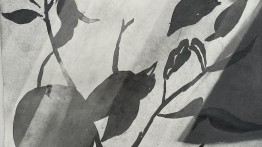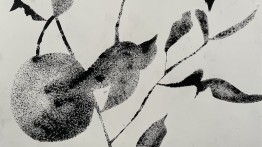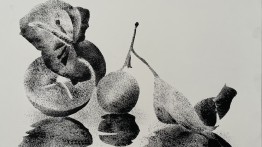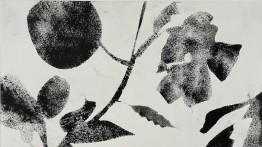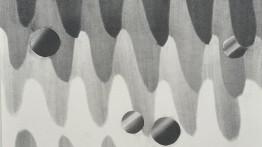Works on Paper: Indirect Drawing & Low Tech Printing
Cost: $490.00
6 In-Person Sessions
Wednesdays, June 21–July 26
6:30 PM to 9:30 PM
LOCATION: Cooper Union Campus
How many ways can an artist make a mark on paper? How can traditional drawing materials be used in new ways?
This class considers inventive approaches to working on paper by combining traditional practices of drawing with low-tech printmaking and experimental mark-making to create complex, layered artworks. The course will cover diverse techniques such as transfers, stenciling, rubbing, reductive drawing, assemblage, and pouncing. Get to know your materials—including paper, graphite powder, gesso, charcoal, and ink—in new ways, pushing the limits of working on paper. Each class session will combine looking at examples, demonstrations, work time, and reflection.
Students of all levels are welcome; the only requirements are an open mind and a willingness to take risks. Students will leave with a variety of experimental and finished artworks, an expanded repertoire of artmaking techniques, and a renewed sense of creativity.
Required Materials:
Some materials will be provided by the instructor and covered in the cost of tuition, but each student must additionally supply:
-
Soft cotton rags (we recommend cutting up old T-Shirts)*
-
Olfa or x-acto knives plus spare blades
-
Scissors
-
Tape (any kind)
-
Sponge
-
Pencils from home
-
Recommended: Cheap bristle brushes, two sets: round long-handle set of 3 and short handle set of 12. Or, if you own bristle brushes in a variety sizes and shapes, bring those.
* = required for session 1
Additional materials may be recommended; these will be optional items you may already own or can easily acquire.
Course Code: WPSP23
Instructor(s): Rina Goldfield

